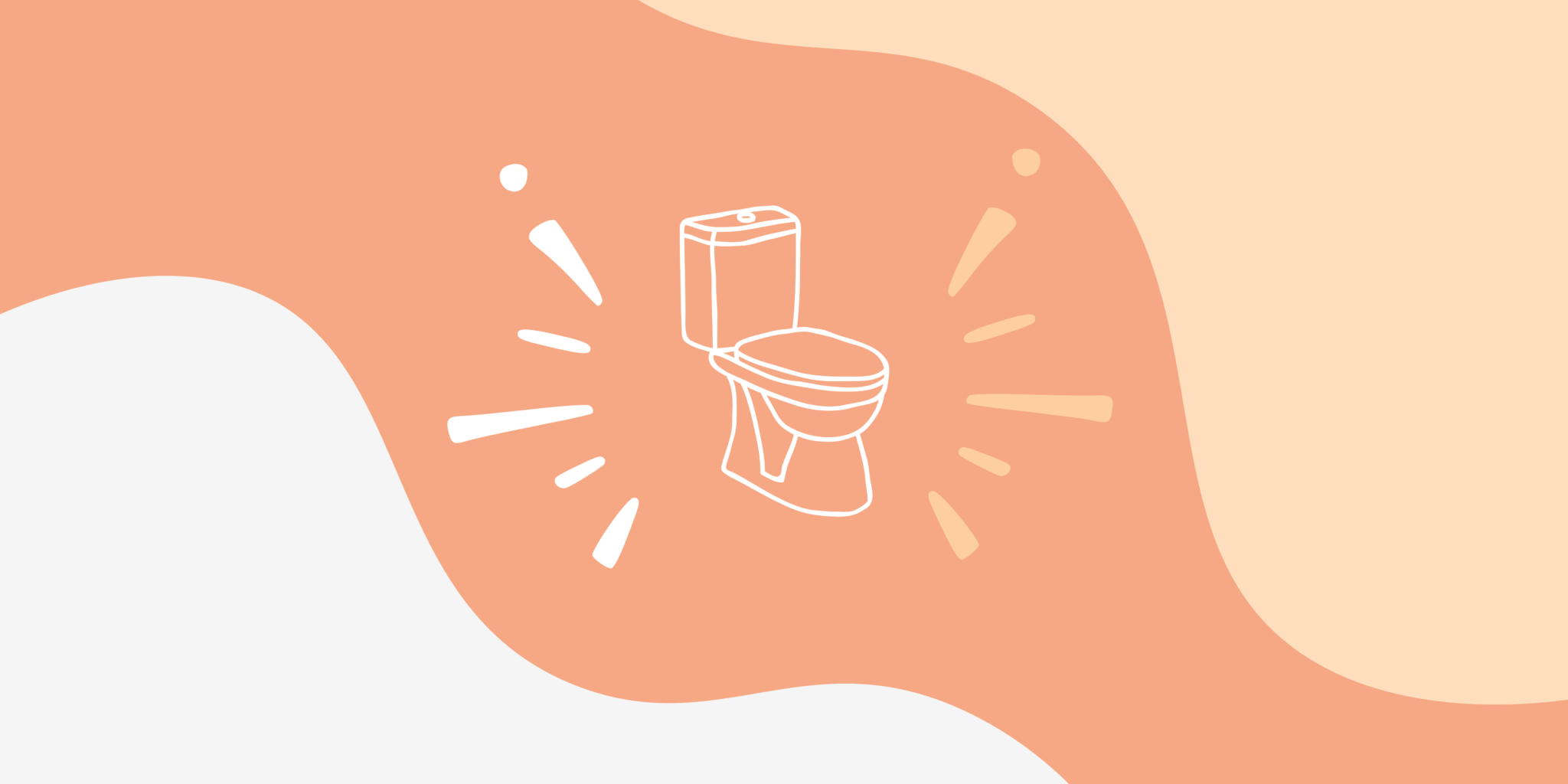
Stomach gas
Balloon stomach, stress stomach, sensitive stomach, or irritable bowel. IBS has many names, and they all signal a stomach imbalance. Gas in the stomach gives you a tense, swollen, and bloated stomach and is a very common symptom of IBS. Why does the stomach become bloated like a balloon?
Are you one of those who experience that the stomach has a life of its own and suddenly, without warning, swells up like a balloon? Balloon stomach is perhaps the expression that best describes how it feels when you have a lot of gas in the stomach, and you might have heard “Congratulations, when is it time?”. A swollen stomach affects everyday life.
Many feel embarrassed and don’t want tight-fitting clothes. Perhaps you need to lie down after meals, or maybe you have an extra pair of pants with you at work that you can change into after lunch? Everyone becomes bloated now and then, without necessarily having IBS. But when the bloating becomes disturbing enough, it can be a signal that something is not as it should be.
Usually, the stomach is flat and nice in the morning, gradually increasing in size during the day, and suddenly we have a piece of balloon stomach in the evening. However, with diet and lifestyle changes, it is possible to tackle the swollen stomach. You can also try yoga to treat a bloated stomach.
Both breathing and diet can cause stomach gas
Balloon stomach is largely due to what we eat because certain foods, low FODMAPs, ferment in the intestines. The gases produced then cause the intestines to expand. The most significant gas producers in the stomach are usually onions, garlic, grains, and legumes, and by avoiding them, the extent can decrease dramatically. In our article on foods to avoid with IBS, you can learn more about what you should avoid. If you would rather read more about good food for IBS, we have an article on that as well.
The fact that intestinal motility does not function as it should when you have IBS also contributes to the gases not coming out as they should but instead bubbling around inside the stomach. You might even feel that they are going in the wrong direction. In such cases, you can help the gases exit by massaging the intestines from right to left, seen from your perspective. A swollen stomach is most common in the evening. This is because the stomach has accumulated food throughout the day, and suddenly, there is too much food that disturbs the intestines. By reducing the intake of FODMAPs during the day, the risk of a ballooning stomach in the evening decreases.
Diaphragm misconnection
The diaphragm muscle lies like a lid just below the ribs. When we breathe the right way, i.e. deep into the stomach, the diaphragm moves up and down. It becomes like an internal massage of the intestines. Therefore, it is important to breathe correctly. If the intestines need more space, the diaphragm should pull up and make room.
In people with IBS, however, it has been observed that the diaphragm is a little stiff and inflexible. This means that it does not relax properly to make room when the intestine needs more space. This can then contribute to the stomach becoming extra hard and bloated. By breathing correctly, deep down in your stomach, you can make the diaphragm work better.
Other causes of gas in the stomach
Stress can also cause the stomach to swell and it can be linked to both breathing and eating behaviour. Eating too quickly, irregularly, or perhaps too much increases the burden on the gastrointestinal tract. In response, it can react strongly with sudden bloating. Many women report getting a bloated stomach during menstruation while also being more sensitive to pain. This is most likely related to hormones.
Gas in the stomach can cause upper abdominal discomfort
It is not uncommon for a swollen stomach to cause nausea or symptoms related to the upper part of the stomach. A bloated stomach can increase upward pressure, which may result in the lower oesophagal sphincter closing less tightly, leading to symptoms of gastritis such as belching, heartburn, and discomfort.
Do not hold in the gas
Even today, there is a significant taboo surrounding gas and passing wind, both among younger and older individuals. Many suffer tremendously and, as a result, limit their lives in various ways. This could involve saying no to dinner invitations, avoiding going to the movies, or even refraining from entering into relationships. Perhaps you need to be on high alert to counteract if the worst were to happen.
Holding in gas is not a good idea as it often causes pain and discomfort. At the same time, it is impractical for many to run to the bathroom every five minutes to release gas. Therefore, it is essential to pass gas when the opportunity arises. Take advantage of a short walk during lunch. Movement can stimulate the intestines and help the gas escape.
If you have IBS, you can reduce gas in the stomach within a few weeks with the right diet and breathing exercises! In the Belly Balance app, you can find recipes, exercises, FODMAP lists, a barcode scanner, and much more to manage your IBS.
Sofia Antonsson
Reg. Dietitian, Belly Balance




